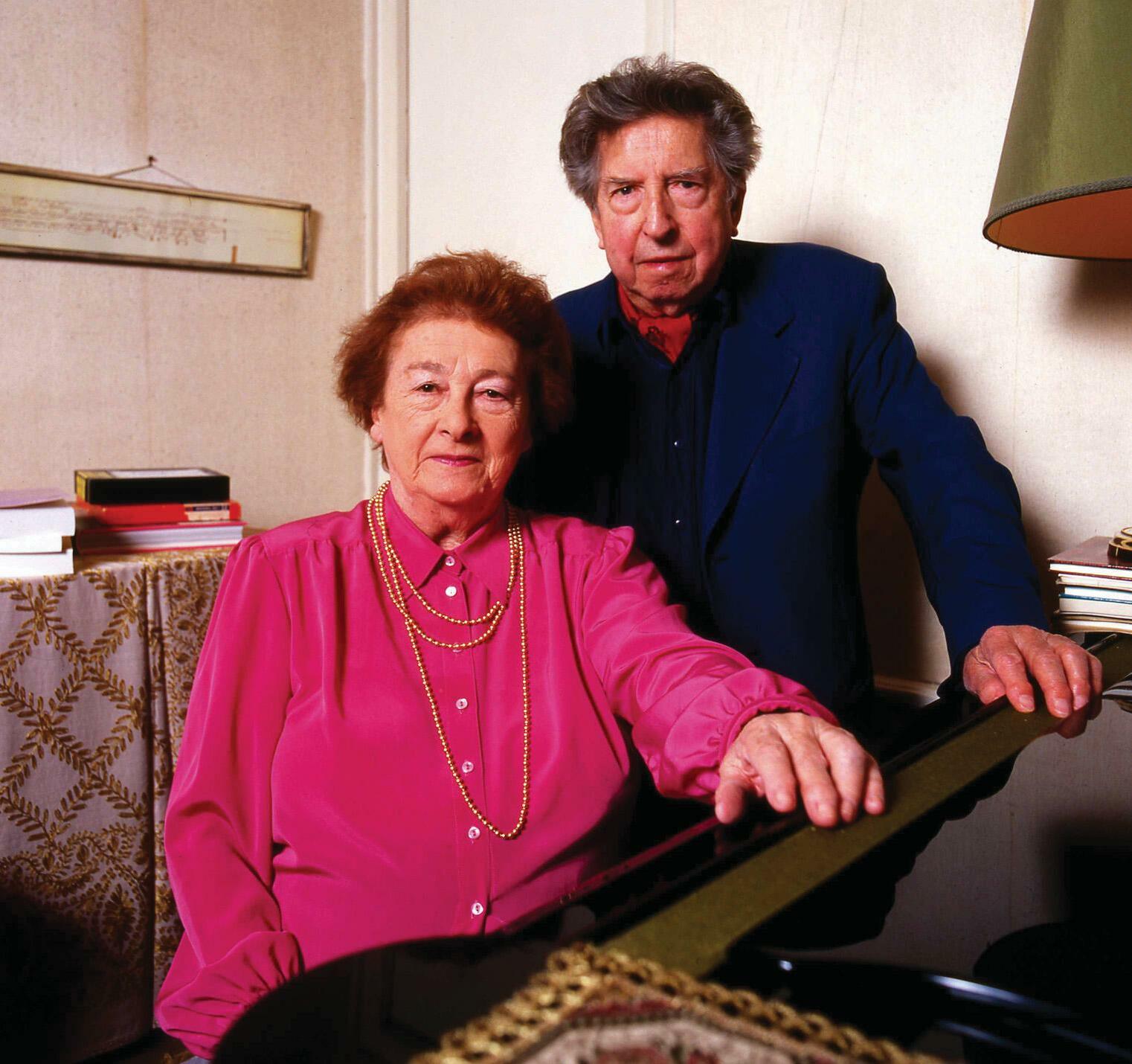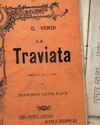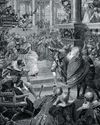
I first met Henri Dutilleux in the late 1980s, through my friendship with Darius Milhaud’s widow, Madeleine. She had known Dutilleux and his wife Geneviève for years and was constantly amused by the differences in their characters. Where Dutilleux was in general peaceful (except on odd occasions, as we shall see), Geneviève was a bundle of energy with strong opinions, as you can judge from her 1988 recording of the Piano Sonata Dutilleux wrote for her shortly after their marriage in 1946. Dutilleux was obviously very fond of Madeleine, whom he once described to me as ‘un cas’ (‘a case’).
In 1991 I interviewed him for a now defunct magazine in celebration of his 75th birthday that January, and from then on I would always go and see him when we were both in Paris, and this would inevitably include a meal in a restaurant, Dutilleux enjoying his food as much as he did his red wine, which he claimed was responsible for his longevity. I once risked suggesting to him that a taste for good food chimed in with the rich textures of his orchestration, and he didn’t deny it. He was aware, of course, that these textures, building as they did on those of Debussy and Ravel, might seem old hat to some younger composers, but he was also aware of the extent to which he had developed that inheritance, through both harmonies and timbres. He did, however, absolutely understand that it was healthy for the young to rebel: he remembered arriving at the Paris Conservatoire in 1933 and finding that Ravelism was rampant – not the real Ravel, for which he always had huge admiration, but pastiche Ravel. Just before the war, Messiaen echoed his thoughts, chastising as ‘Lazy: those writers of sub-Fauré and sub-Ravel. Lazy: the fake Couperin maniacs, writers of rigaudons and pavanes.’
This story is from the May 2023 edition of BBC Music Magazine.
Start your 7-day Magzter GOLD free trial to access thousands of curated premium stories, and 9,000+ magazines and newspapers.
Already a subscriber ? Sign In
This story is from the May 2023 edition of BBC Music Magazine.
Start your 7-day Magzter GOLD free trial to access thousands of curated premium stories, and 9,000+ magazines and newspapers.
Already a subscriber? Sign In

A way with words
Great operas are inextricably linked with their composer but, asks Jessica Duchen, how often do we acknowledge the important role of the librettist?

THE MAGNIFICENT SEVEN Pick a theme... and name your seven favourite examples
Conductor Domingo Hindoyan nominates the best musical depictions of anger and frustration
A glittering beacon
Until its destruction in the fire of 1936, the Crystal Palace was one of the world's most exciting music venues, and its legacy still lives on today, writes Tom Service.

Christoph Willibald Gluck
Paul Riley traces the wandering existence of a cosmopolitan composer who made it his life's work and ambition to rip up opera's rulebook

The Awards are upon us once more!
Time to vote for the best recordings of the last 12 months

LEADING FROM THE FRONT
From running efficient rehearsals to learning to speak to orchestras with clarity and empathy, an array of exciting courses for conductors has bloomed in recent years, finds Clare Stevens

Kindred spirits
As their second opera takes to the stage, composer Gregory Spears and librettist Tracy K Smith talk to Charlotte Smith about their special partnership

The censors' refusal to play ball drives Verdi to despair
In the early months of 1857, Verdi had Shakespeare on his mind, and specifically King Lear.

11 Bed-Hopping Composers
Jeremy Pound lifts the covers off those notorious notesmiths who found the thrill of playing away simply too hard to resist

André Rieu Violinist, Conductor
King of the Waltz, Dutch musical impresario André Rieu has taken the world by storm with his Johann Strauss Orchestra.